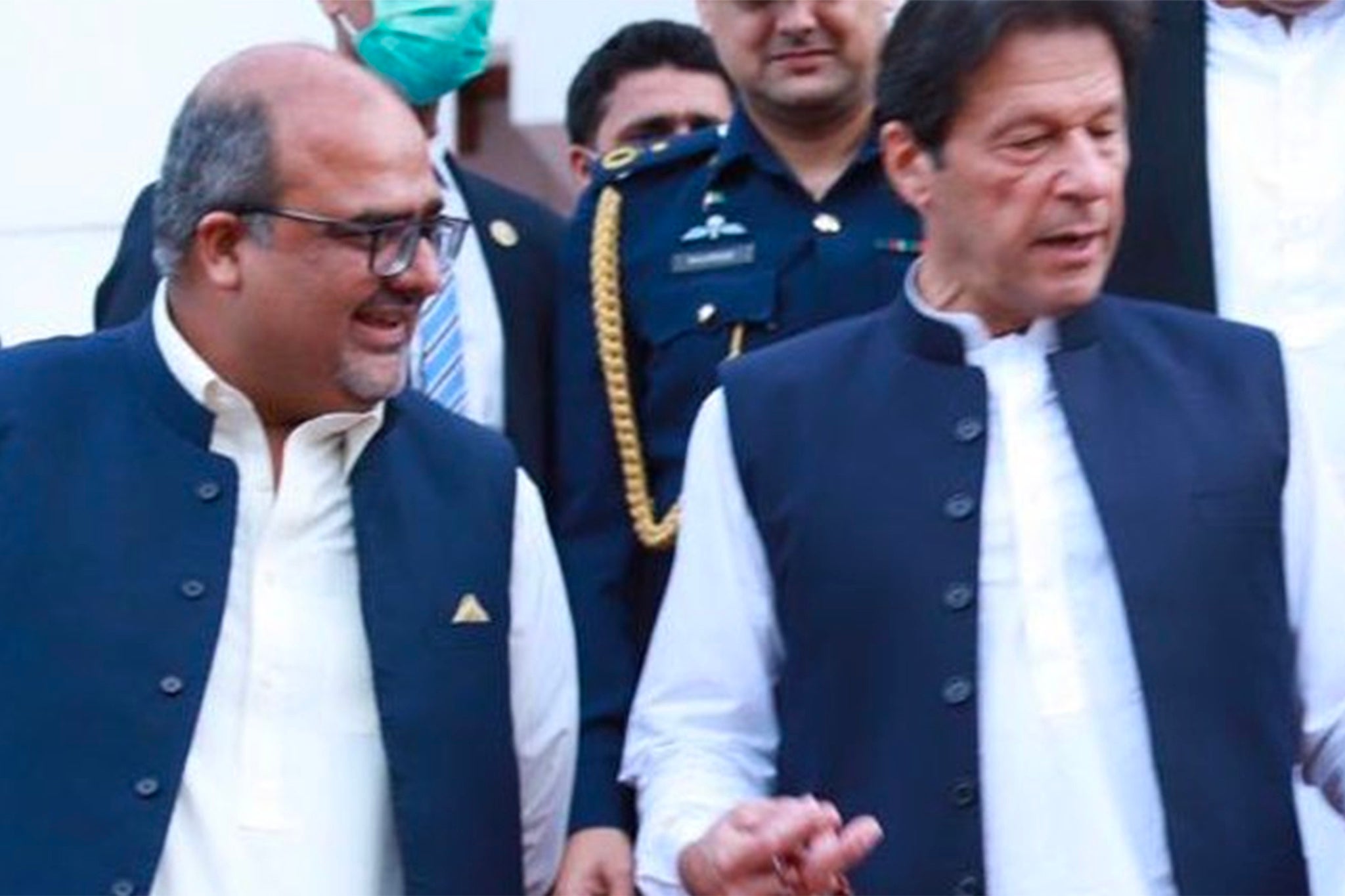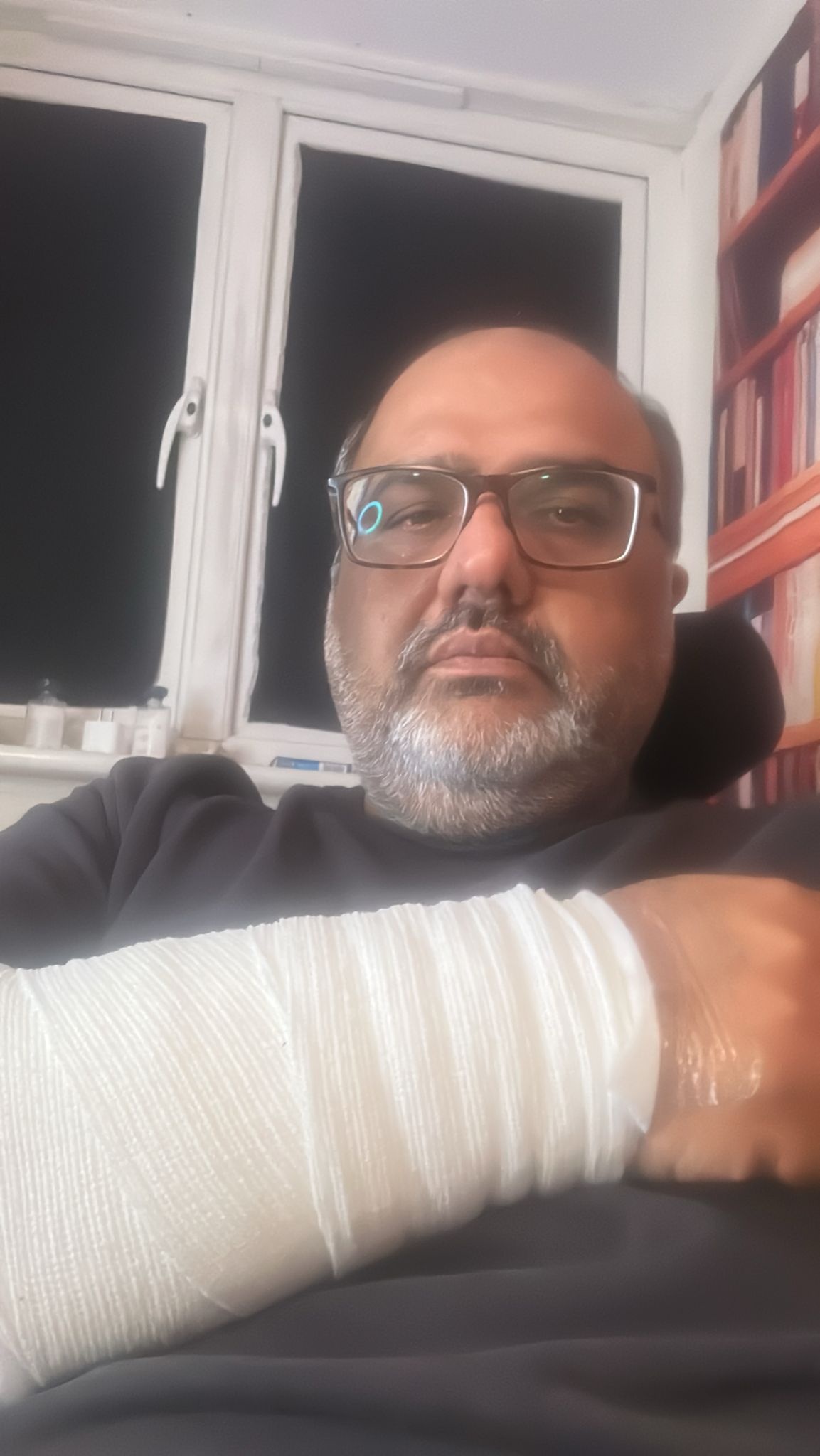The UK must stop political refugees being attacked by agents of foreign states
An acid attack on Pakistan’s former anti-corruption minister outside his Hertfordshire home is a timely reminder of the risks that political dissidents can face, says Eric Lewis


Last month, my friend Shahzad Akbar, a former anti-corruption minister in Pakistan and leading human rights lawyer, was attacked with sulphuric acid in front of his four-year-old daughter at his home in Hertfordshire, where he lives in exile.
The incident, which missed his eyes but caused burns to his torso, prompted claims by senior Conservative MP David Davis that there was persuasive evidence it had been carried out by the Pakistani regime.
Shahzad was forced to leave Pakistan when the new government began bringing trumped-up charges against Imran Khan and his former ministers. As I wrote in July, Pakistani authorities arrested Shahzad’s brother, in what MPs and other public figures considered an attempt to intimidate Shahzad – and put pressure on him to come back to Pakistan, where he could be forced to testify and falsely implicate Imran in wrongdoing. After some three months in prison, Shahzad’s chronically ill brother was finally released on medical grounds.
Shahzad has been granted refugee status in the United Kingdom. The granting of refugee status to political dissidents has been a central principle of both Anglo-American and international law for centuries.
Even before the creation of the United States, the English crown promoted its colonies in North America as a refuge for those oppressed by its European rivals for their religious or political opinions. After the horrors of Jewish refugees being returned to Nazi Germany, the United Nations in 1951 adopted the Convention Relating to the Status of Refugees. Article 1 of the Refugee Convention defined a “refugee” as any person who “owing to well-founded fear of being persecuted for reasons of race, religion, nationality, membership in a particular social group, or political opinion, is outside of the country of his nationality and is unable to or, owing to such fear, is unwilling to avail himself of the protection of that country.”

Now there is a new problem: authoritarian countries are sending thugs to harm or kill dissidents on foreign soil when the country that has granted refugee status fails to invest the political will and resources to prevent it.
In recent weeks, there have been credible reports that Indian intelligence operatives travelled to Canada and murdered Hardeep Singh Nijjar, a Sikh nationalist, in the British Columbian Sikh temple that he led.
American authorities reportedly foiled a recent plan to murder another Sikh nationalist resident in the US and indicted an Indian agent. Jamal Khashoggi was murdered in Istanbul, but that killing took place in a Saudi consulate, which was diplomatic property and over which Turkish officials had no security authority.
In the UK, the government said earlier this year that Iran had attempted to kill or kidnap what it perceived to be enemies of the regime outside of Iran. “Since the start of 2022, the UK has responded to more than 15 credible threats to kill or kidnap British or UK-based individuals by the Iranian regime,” it said in a statement.
Transnational attacks are a risk in the UK because the government has failed to provide adequate protection to those dissidents who have come to its shores. As a recent report from the US-based human rights organisation Freedom House stated: “The United Kingdom has been the site of numerous high-profile attacks against exiles and is an important destination for diasporas at risk of transnational repression. Authorities are aware of the threat posed by transnational repression. However, foreign policy responses are hampered by political relationships with perpetrator states. Migration policies are a major weakness in the UK’s preparedness to address transnational repression, with antimigrant policies putting potential victims at greater risk.”
In other words, the UK government knows that authoritarian governments pose danger but, having granted refugee status, it is failing to do enough to protect potential targets.
David Davis has said it is likely the attack on Shahzad was linked to the Pakistani ISI, the country’s intelligence agency. “The Pakistanis have to understand that whatever the standards of law at home, they cannot be allowed to attack British residents on British soil,” he said.
Mr Davis also likened the attack to the poisoning of Yulia and Sergei Skripal by Russia in Salisbury in 2018. “The foreign secretary should summon the high commissioner [of Pakistan] and demand an explanation,” he added.
Just days before the attack, Shahzad received a special delivery letter at his home, despite the fact that all correspondence was to go to his Islamabad address. Shahzad notified the National Crime Agency and police of his concerns but was advised that the threat against him remained low. The local police and paramedics who responded to the attack were great but there is little that they can do to protect a political refugee.
Shahzad and his family have permanent residency. He is grateful for all that this country has done. But if the United Kingdom is going to provide a haven to courageous people like Shahzad, it cannot do so on the cheap. Transnational repression is a global phenomenon. The United Kingdom needs to take all necessary steps, as a matter of diplomacy, security and decency, to protect dissidents within its borders from harm.
Eric Lewis is a human rights lawyer who sits on the board of The Independent






Join our commenting forum
Join thought-provoking conversations, follow other Independent readers and see their replies
0Comments